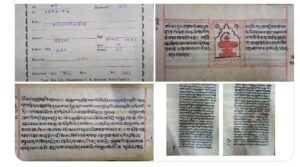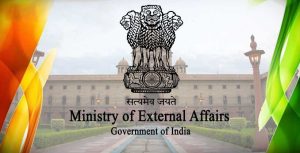New Delhi, July 1: The devotion and love for religion is very high among the people of India. This can be gauged from this, whether it is a city or a village, 60 percent of the people worship or pray daily. The really good news for Indian-style secularism is that religious tolerance thrives. The survey has revealed respect for all religions in all the big six religious groups of the country. All the people believed that they were very free to follow their religion and belief.
Interaction with 30 thousand people in 17 languages
Pew Research Center has presented the survey titled ‘Religion in India: Tolerance and Segregation’. The survey was conducted in 17 languages between the end of 2019 and the beginning of 2020. In this, about 30,000 people have been interviewed face-to-face. Most people in the survey say that it is most important for people of all religions to be a ‘true Indian’. People believe that tolerance is a religious and civic principle. Indian people are unanimous that respect for each other’s religions is very important.
Speaking Hindi is a part of national identity
64% of Hindus say that being a Hindu is as important as being a true Indian. 59 percent of Hindus associate Hindi speaking with national identity. Those who say these two things also voted for BJP in the 2019 parliamentary elections. The number of such people is 30% of the total Hindus. Given the wide regional diversities, it would be a great pleasure for a north-centred Hindutva politics.
Consent to political interference in religion
There are more people who say that politicians should have influence on religious matters. Since 2014, Indian politics has also taken definite steps in this direction. The construction of Ram temple, the state law criminalizing inter-religious marriages and the cow protection slogan showed that the BJP was recognizing these sentiments.
Even educated Indians agree with state interference in religion. But even if they are conservative, what does this mean for the popular reception of a Uniform Civil Code? This would be a progressive political intervention to take matters like marriage, inheritance and divorce out of the purview of personal law.
69% people in the survey are SC / ST / OBC-MBC
Table 3 shows high caste awareness among Indians, including Muslims and Christians. There are more people in the survey who have described themselves as OBC, SC and ST. In such a situation, it supports the demand of the leaders associated with the OBCs who demand that the figures from the OBCs be presented separately in the Tenth Census. 69% of the people in the Pew survey described themselves as SC/ST/OBC-MBC. Of these, the number of college graduates was 56%. Irrespective of caste, the whole of India wants economic reforms. Most of the people surveyed, hypothetically, had no reservations for neighbours of other religions.
Hindus, Muslims are against marriage in other religions
According to Table 4, based on the survey, there is a clear separation among Indians regarding friendship with people from other communities. Also among married adults, 99% Hindu, 97% Muslim and 95% Christian married in their own religion. 67% of Hindus, 80% of Muslims and 54% of college graduates said it was very important to prevent women from their community from marrying in another religion. All groups also largely agreed to stop inter-caste marriages by women or men. Like Hindus, 77% of Muslims believe in Karma.
Some highlights of the survey
36% of Indians do not want their neighbour to be a Muslim. This number is 54% among the people of Jainism who do not want Muslim neighbours.
81% of Indians believe that Gangajal has the power to purify whereas the number of Christians who believe so is 33%.
66% of Hindus say that their religion is completely different from Islam. At the same time, 64% of Muslims also believe the same.
77% of Hindus and almost the same number of Muslims believe in the fruits of action.
In North India 12% of Hindus, 10% of Sikhs and 37% of Muslims believe in Sufism.
74% of Muslims spoke of a separate religious court for themselves in matters like family disputes, divorce.
48% of Muslims believed that partition in the subcontinent was a bad thing for tension in communal relations.





